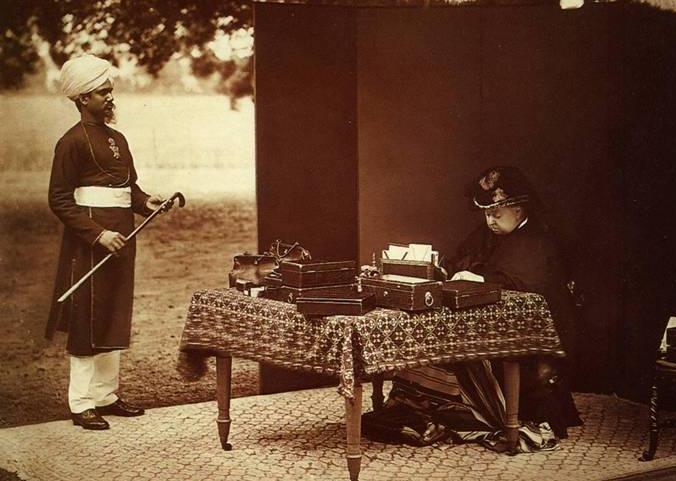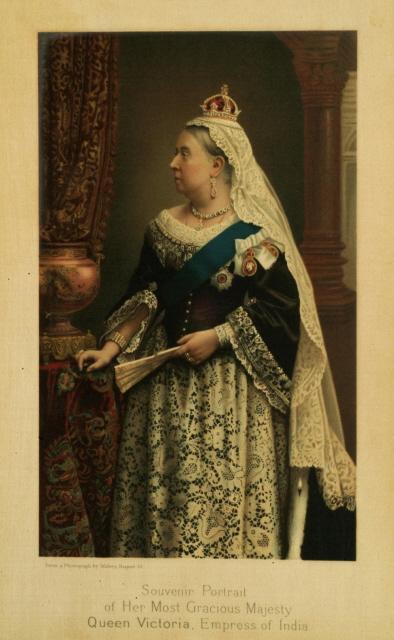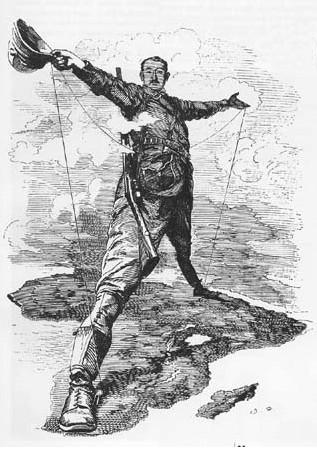The British Empire

When the United States gained independence in 1783, there were predictions that this would mean the end of Britain's empire. However, in the 19th century the Empire grew, and many believed that Britain had an obligation to 'civilise' the world.
In the 19th century, terms like 'The White Man’s Burden' and 'Social Darwinism' garnered support for colonialism. Much of the Victorian culture revolved around ideas of trade and economic development, in which overseas territories continued to play central roles. Trade was important for Britain, and establishing and maintaining colonies was seen as crucial. The British Empire expanded significantly from the mid-19th century reaching its height by 1922.

In the sense that the thirteen American colonies had been central for Britain's first empire, it is no exaggeration to claim that India was 'the jewel in the crown' of the second – India was Britain's most valued colony.
The East India Company had been established in 1600 under Queen Elizabeth I, so there was a long and successful trading history with India and the Far East. With the East India Company firmly established on the Indian subcontinent, India became the centre of trade in the area, and Britain had trading posts in China, Ceylon (which today is Sri Lanka), and on the sea route to India, especially along the African coast.
In the mid-19th century, tension in India began to rise, and in 1857 Indian soldiers organised a mutiny. In fear of losing markets and commercial interests, Britain decided to take full control of the vast country by setting up an Indian administration on behalf of the British government. The British Indian administration was called 'The Raj' and Queen Victoria (1836–1901) became the 'Empress of India' in 1876.
Africa was an enormous continent; it was regarded as dangerous, impenetrable, and full of fatal diseases. European trading posts had therefore been established on the coast in order to avoid the African interior, and African middlemen were used, for example during the peak of the slave trade in the 18th century. In the mid-Victorian period, more and more attention was paid to Africa.
Exploration and technological advancements lead to an increased belief in the possibility of harnessing and exploiting the enormous resources that were found on the continent.

In 1884–85, European powers met in Berlin to agree on how Africa could be colonised without creating conflicts between the European powers. At the Berlin Conference, European heads of state carved up Africa and divided the continent between them, without any Africans being present.
Under the slogan 'Cape to Cairo', Britain expanded their possessions in Africa and wanted to construct a railway line from Cairo in Egypt in the north of Africa to the Cape Province in the south. At the same time, the French sought to safeguard trade along the east-west axis, causing the two most powerful colonial powers to meet head-on.
The territorial disputes nearly ended in warfare, but were eventually solved diplomatically, to Britain’s benefit. Britain did, however, shelve its ambition of a north-south railway as too many political, geographical and economic obstacles proved the project too ambitious.
When the Europeans divided up Africa, they paid little or no attention to the societies and people who lived there. Groups of people who had long standing conflicts found themselves within the same borders. The diversity of the colonised peoples did not matter much to the Europan colonisers; to them they were all 'Africans'.
In the 19th and early 20th century the British boasted that 'the sun never sets on the British empire'. By that they meant that the empire was so vast and covered so much of the world's surface, that it was always daytime somewhere in the empire. The statement was also meant metaphorically: that the empire would last forever, its time in the sun would never end. That, however, would not be the case. As the empire reached its height in the early 1900s, the cracks were already beginning to show.
What do you remember from the text? In the following interactive task, you will encounter eight different statements. Which are true and which are false?
Guoskevaš sisdoallu
Read about the rise of the first British Empire during the reign of Elizabeth I.